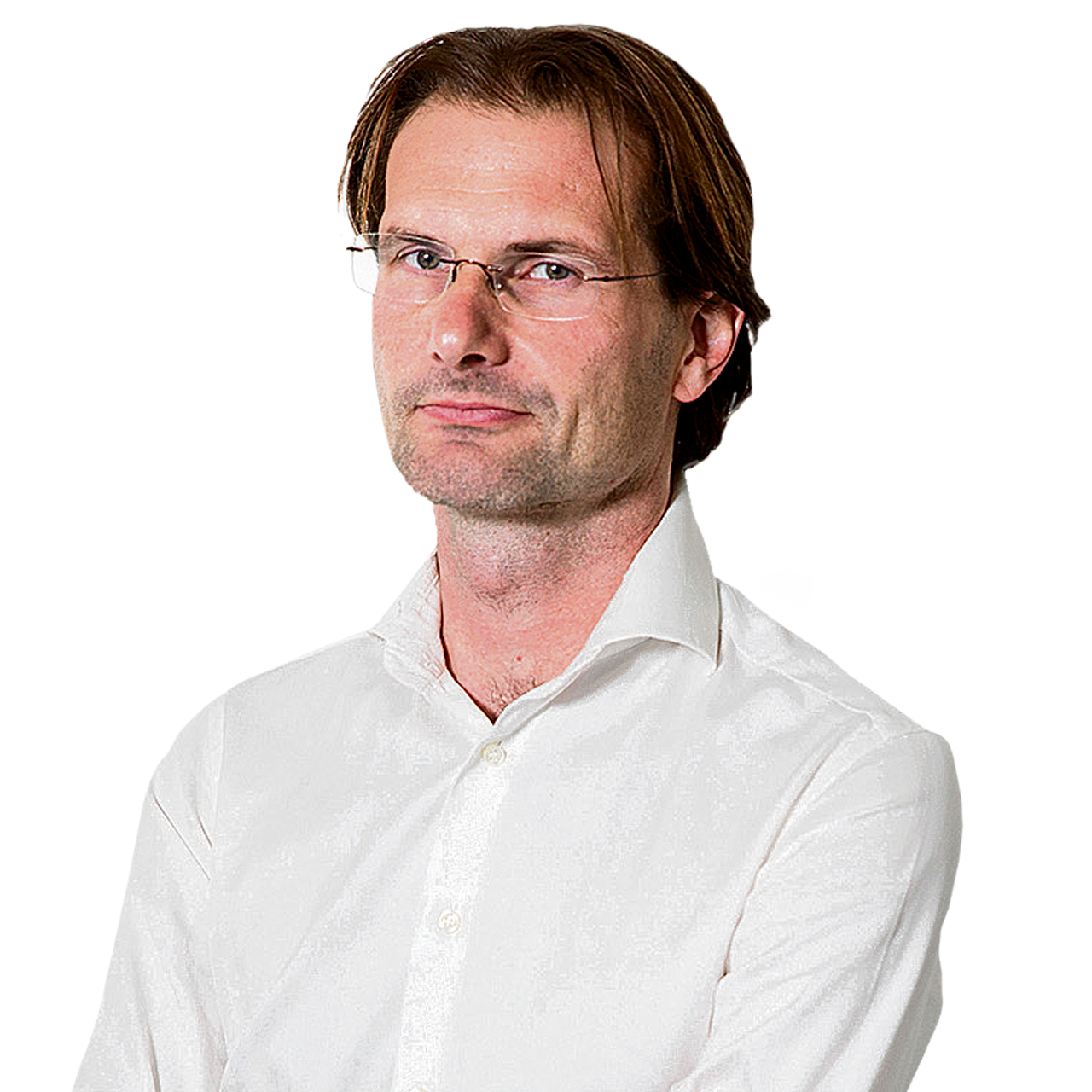Zahra Runderkamp investigated the exclusion of women in politics. ‘Only very limited space is made’
:format(webp)/s3/static.nrc.nl/wp-content/uploads/2024/06/web-1206bingelijkheid.jpg)
As an eleven -year -old girl, growing up in Amsterdam, Zahra Runderkamp founded a political party: ZZZ. Certainly sunny Zahra. Runderkamp sent a newsletter to family members, friends and classmates, in which she explained what she wanted to change with her party. Her most important point: radical equality between men and women. « It often happens that men earn much more than women, » she reads from one of her newsletters. « But that is often unjustified. »
Politics and person cannot be separated, but science and person also intertwine. Political scientist Zahra Runderkamp (1991) strongly believes in this. Her work as a scientist is strongly influenced by her personal life, and by her view of society and politics. Next Wednesday she will be promoted to the University of Amsterdam, and her dissertation on diversity and inclusion in Dutch politics will be published.
Politics, Zahra Runderkamp decided, after her ZZZ period, is not her world. « I am not a politician, but in the end a researcher, a viewer. But I am driven in my work by what I see as injustice. And what touches me personally also drives me as a scientist. »
« You see that women have to stand in a world that creates all kinds of barriers »
This touched her, for example: on December 6, 2023, she saw, very pregnant at home on the couch, how the new Lower House was installed. Two MPs, Hanneke van der Werf and Ilana Rooderkerk (both D66), had gave birth shortly before. They still had to be present, because otherwise their new term could not start, and they would not be entitled to leave. By being there, they did get that leave, the mandatory number of sixteen weeks, although they had already taken off leave in the previous period. That’s how the law writes it.
VVD member Queeny Rajkowski was also installed that day as a member of parliament. She was about to give birth, visibly had difficulty being present there and called the mandatory ceremony On Instagram « Everything but ideal. »
What did you think when you saw the sworn?
« My calculated date was around Queeny. I was physically done with it, and I was able to imagine how to feel. Oh my God, I thought, what do they do to her that she should stand there as a highly pregnant woman? »
What lesson did you take?
« That politics is a place where the man determines the norm. For women, only very limited space is made. The installation is an example of how such a mechanism of exclusion works. »
In recent political history there have been many striking breakthroughs, says Zahra Runderkamp: the first woman of color as party leader in the Lower House (Sylvana Simons), the first Trans woman (Lisa van Ginneken), the first non-binary member (Ines Kostic). At the local level, women have more often given an eligible place on ski lists in recent years.
But the attention to individual success stories is cloudy of the whole, argues Runderkamp in her dissertation. Women, people with a migration background, or people from other marginalized groups have much more difficulty in standing in politics than their male, white colleagues. They leave prematurely, get small portfolios, get into conflict, or suffer in silence. Runderkamp: « So there is more and more diversity in politics, but no, or insufficient inclusion. That started to walk. »
Read also
Dutch women’s emancipation is standing, at least 134 years waiting for gender equality
How is that possible? The best known about women in politics. Around 35 percent of the municipal councilors are women. The percentage of female aldermen is lower: 28 percent. There are now 55 women in the Lower House, or 36.7 percent. About 20 percent of female politicians leave the office prematurely.
« If you look carefully at the stories behind those percentages, » says Runderkamp, »then you see that women have to stand in a world that sets up all kinds of barriers. That explains that they end up in politics less often, and leave politics relatively quickly. »
Which barriers are that?
« There are not one or two causes, the problem is much more complex. When I started investigating it, I saw an accumulation. At the top is the organization of the work: the long meeting days and the rigid working environment, which make it difficult to combine politics with a family. In addition, the physical working conditions, such as the lack of cobbles, are having to be difficult. sitting.
Some parties have female leaders, including the three coalition parties VVD, NSC and BBB. Do you see that as progress?
« I follow Dilan Yesilgöz closely, she has made it as a woman with a migration background to leader of the VVD. Of all the women in politics, she now has the greatest chance of premiership. I see her struggling with the problems that many women have in leadership positions. at are. As a result, she is struggling than politicians like Geert Wilders or her predecessor Mark Rutte. ”
Yesilgöz names her migration background or gender very little. Does she differ from others in that?
“There are two flavors: some do it very active, others not at all. I have 88 maiden speeches analyzed, the first speech by MPs in the plenary room. Some speak actively about their sex or background, such as Sylvana Simons (BIJ1), who spoke about the slavery past of her family. Yesilgöz also mentioned her flight from Turkey in 2017, and the use of her parents for equal rights for homosexuals and religious minorities. But since then the message is more implicit, she talks about it less often. That is not necessary, she visibly carries her gender and migration background. ”
A few parties, GroenLinks-PvdA and Volt, have as many women as men on the list of candidates. Do you see that as a solution?
« When it comes to solutions, it is always about the inflow immediately. If the candidate lists are only in proportional, then it will be fine. It will help, but the problem remains: women have more difficulty reaching higher positions and leaving politics relatively quickly. Little is known about the causes. And the motives of parties are not always black and white. »
What do you mean by that?
« For example: women with a migration background are relatively more common on candidate lists than men from the same group, so parties can check two marginalized groups at the same time. Some parties recruit more diverse, but still choose the white man as a party leader, such as Frans Timmermans at GroenLinks-Pvda. And in politics you sometimes see what they are in the ‘Glazes Dan Dan Dan Dan Dan Dan Dan Dan Risky positions, where they almost have to fail. «
« A lot has to be done locally: women and people with a migration background are heavily under -represented »
In your investigation you are also critical of political journalism. What do you think goes wrong there?
„Media bepalen of bevestigen, soms onbedoeld, de normen. De meeste aandacht die witte, mannelijke politici krijgen, gaat over hun ideeën of ideologie. Bij vrouwen of politici met een migratieachtergrond hebben journalisten de neiging die achtergrond uitgebreid te bespreken. Daarmee doen ze twee dingen: ze zetten de ene politicus neer als de norm, en de ander als iemand die buiten die norm staat, een indringer in het systeem. Bovendien: hoe meer aandacht, tijd, of ruimte er opgaat aan het bespreken From someone’s background, the less place is for someone’s ideas. «
Many barriers are practical in nature, and therefore perhaps easier to change. Why does that happen too little, do you think?
« Changing an organization is always difficult, in every working environment. You will soon be told that something has always been like that. Moreover, politics is an even more volatile environment: there is always something that is not that important to change now. »
Such as a cabinet.
« The first thing I thought when the cabinet fell was: » Oh no, how is the municipal elections next year? » Especially at the local level, women and people with a migration background are heavily under -represented. Functions.
Read also
Diversity leads to success – but involve the men

:format(webp)/s3/static.nrc.nl/images/gn4/stripped/data127664037-898d7c.jpg)

/s3/static.nrc.nl/wp-content/uploads/2025/06/12124832/data133133755-37f1c5.jpg)
/s3/static.nrc.nl/images/gn4/stripped/data133626917-95c414.jpg|https://images.nrc.nl/ytPPSkvaq82g81G9_4ugsRJNEQI=/1920x/filters:no_upscale()/s3/static.nrc.nl/images/gn4/stripped/data133626917-95c414.jpg|https://images.nrc.nl/YyxEyeBQvXEfM5WWLnIf4qNc82Q=/5760x/filters:no_upscale()/s3/static.nrc.nl/images/gn4/stripped/data133626917-95c414.jpg)

